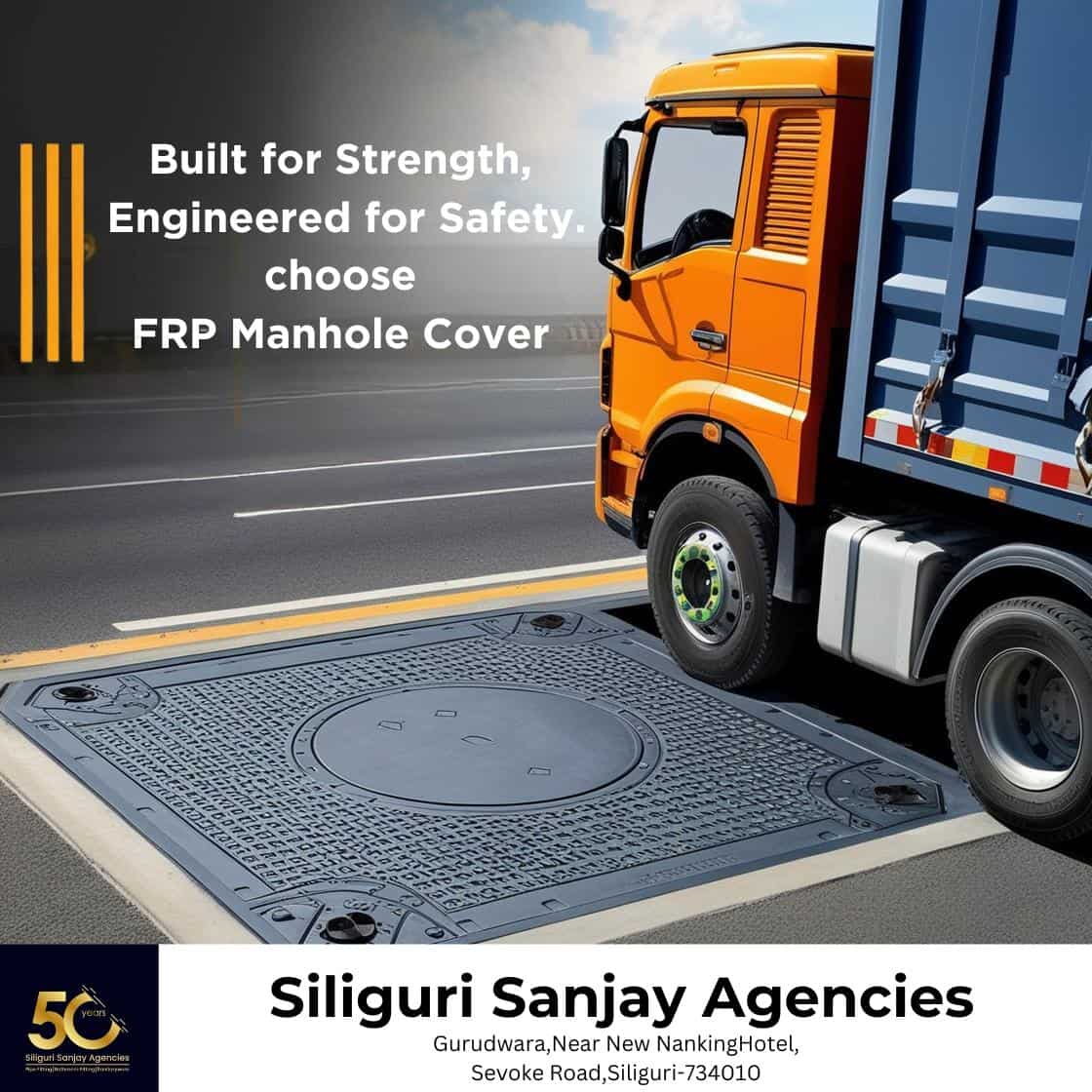5 Reasons Why FRP Manhole Covers Are the Best Durable and Lightweight Solution for Modern Infrastructure
When it comes to urban infrastructure and construction projects, the choice of manhole covers plays a crucial role in ensuring safety, durability, and ease of maintenance. An FRP manhole cover has emerged as a superior alternative to traditional materials like cast iron or concrete. Known for its lightweight yet robust characteristics, the FRP (Fiber Reinforced Polymer) manhole cover is gaining popularity in various applications, from municipal sewage systems to industrial plants.

What is an FRP Manhole Cover?
An FRP manhole cover is manufactured using fiber reinforced polymer composites. These composites combine a polymer resin matrix with high-strength fibers such as glass, carbon, or aramid. This combination results in a product that is strong, corrosion-resistant, and much lighter than metal covers.
Unlike conventional manhole covers made from heavy cast iron or concrete, FRP covers offer several advantages, especially in environments prone to chemical exposure or where easy handling is a priority.
Unlike concrete or metal covers, FRP covers do not crack, rust, or deteriorate over time.
Learn more about composite materials from CompositesWorld. (do-follow link)
Advantages of FRP Manhole Covers
1. Lightweight and Easy to Handle
One of the biggest benefits of an FRP manhole cover is its significantly reduced weight compared to traditional covers. This makes installation and maintenance much easier and safer, reducing labor costs and the risk of injuries. Workers can easily remove and replace the cover without heavy machinery or excessive manpower.
This saves time, reduces manpower, and lowers risk of worker injury.
See why lightweight materials are safer on OSHAcademy (do-follow link)
2. Corrosion Resistant and Durable
FRP materials are highly resistant to corrosion caused by chemicals, moisture, and salt. This makes FRP manhole covers ideal for sewage treatment plants, chemical industries, coastal areas, and other harsh environments. Unlike metal covers, FRP does not rust or degrade over time, ensuring a longer lifespan.
3. High Strength and Load-Bearing Capacity
Despite being lightweight, FRP manhole covers provide excellent load-bearing capacity. They can withstand heavy traffic loads including vehicular and pedestrian traffic, making them suitable for roads, sidewalks, and industrial zones.
Read about load classes for manhole covers on EJCo (do-follow link)
4. Customizable Design and Color
FRP covers can be molded into various shapes and sizes according to project requirements. They also offer color customization, allowing easy identification of utilities and enhancing safety. Some manufacturers provide anti-slip surfaces and embedded logos or markings for better visibility.
5. Non-Conductive and Safe
Unlike metal covers, FRP is non-conductive, which means it does not conduct electricity. This property makes it safer for electrical utility applications, reducing the risk of electric shocks.
Pair them with high-quality valves and fittings for a complete infrastructure solution.
Applications of FRP Manhole Covers
Due to their versatile properties, FRP manhole covers find applications in a wide range of industries:
Municipal Sewer Systems: Their corrosion resistance is ideal for sewage and drainage applications.
Industrial Facilities: Chemical plants, factories, and refineries prefer FRP covers to withstand harsh chemical exposure.
Roads and Highways: Lightweight design makes installation easier for traffic covers.
Electrical Utilities: Non-conductive nature ensures safety in electrical vaults.
Water Treatment Plants: Resistant to moisture and chemicals, they suit water treatment infrastructure.
Installation and Maintenance
Installing an FRP manhole cover is straightforward due to its lightweight nature. It fits easily into standard frames without requiring heavy lifting equipment. Routine maintenance involves regular cleaning and inspection to ensure the cover remains intact and free from damage.
Since FRP is corrosion-resistant, the need for repainting or protective coatings is eliminated, saving both time and money in the long run.
Pair your installation with solvent cement and bathroom accessories to complete your infrastructure project.
Why Choose FRP Manhole Covers Over Traditional Materials?
Traditional manhole covers made from cast iron or concrete are heavy, prone to corrosion, and difficult to handle. In contrast, the FRP manhole cover offers a combination of strength, safety, and convenience that modern infrastructure demands.
Additionally, the durability and weather resistance of FRP make it a cost-effective solution over the lifetime of the installation. With increasing urbanization and infrastructure development, using FRP covers contributes to sustainable and efficient construction practices.
Conclusion
If you’re seeking a future-ready, sustainable, and cost-effective solution for drainage and utility access, the FRP manhole cover is the answer. The FRP manhole cover is revolutionizing the way manholes are covered and maintained across industries. Its lightweight, corrosion-resistant, and high-strength properties make it an ideal choice for municipal, industrial, and commercial projects alike.
By opting for FRP manhole covers, municipalities and companies can improve safety, reduce maintenance costs, and enhance overall operational efficiency. If you are looking for a reliable, durable, and easy-to-handle manhole cover, FRP is definitely the smart choice for today and the future.
Explore the range of FRP manhole covers available at Siliguri Sanjay Agencies, your trusted supplier for 50 years.
